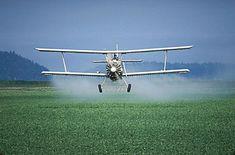
Marks & Spencer has announced it will prohibit a further 10 pesticides worldwide as part of its industry-leading position on pesticide reduction.
This is in addition to the 60 pesticides the high-end retailer banned in 2002, and the extra nine pesticides it plans to ban by 2009, to provide suppliers with enough time to find suitable alternatives.
The move, which supports M&S’s Plan A commitment to use the most sustainable source of raw materials possible with the least impact on the environment, means that by April 2009 a total of 79 pesticides will have been banned by the retailer, by far the most comprehensive pesticide reduction scheme of any UK retailer.
Pesticides moving to the prohibited list include Vinclozolin, a fungicide used on grapes and legumes which poses a potential hazard to workers; Simazine, which is highlighted on the Water Framework Directive for its potential risk to aquatic life and has been banned as a residual herbicide on a variety of crops; and Sulphuric Acid, which can be used for the desiccation of UK potato haulm prior to harvest and has a potential impact on wildlife within the treated area.
David Gregory, technical director at M&S, said: “Customers are increasingly concerned about how their food is produced - be it additives in food or how farming methods affect the environment. We have worked hard to develop a leading position on pesticide reduction, phasing out chemicals before they are officially banned to help allay customer concerns, and we are equally committed to doing all we can to protect the environment by using the most sustainable sources of raw materials possible.”
Six out of the 10 pesticides under fire from M&S are listed on the World Wildlife Fund’s (WWF) list of pesticides that could potentially harm the environment. Elizabeth Salter Green of CHEM Trust - the new non-government organisation supported by WWF and Greenpeace, with a mission to protect humans and wildlife from harmful chemicals - said: “M&S deserves praise for its trail-blazing and enlightened attitude to phasing out the use of certain potentially harmful chemicals on the food they sell. Some of these pesticides have hormone-disrupting properties and there is a real worry that exposure to a cocktail of chemicals can undermine human and wildlife health.”
At the same time as imposing the ban on further pesticides, M&S has also extended the reach of its Field to Fork scheme to incorporate customer concern about pesticide residues, pay and treatment of workers and food safety. Field to Fork contains the M&S Farm Environment standard, written in partnership with LEAF, which will be used as a mechanism to collect data and record improvements in performance on carbon footprints, water footprints and wildlife habitat.
The retailer has also announced creation of an expert group of Independent Pesticide Reduction Specialists, available to provide solutions to M&S farmers all over the world to further reduce pesticide residues in the foods they sell.



